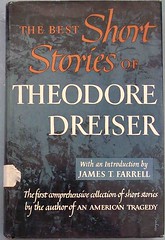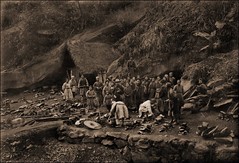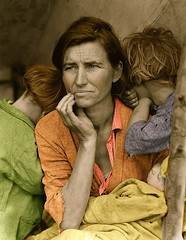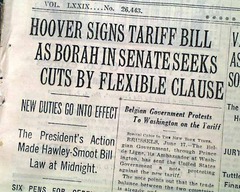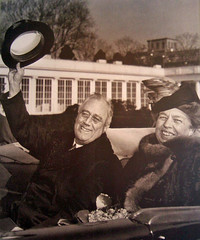| 9760179937 | Popular Sovereignty | Notion that the sovereign people of a given territory should decide whether to allow slavery. Seemingly a compromise, it was largely opposed by Northern abolitionists who feared it would promote the spread of slavery to the territories. |  | 0 |
| 9760179938 | Fugitive Slave Law | Passed as part of the Compromise of 1850, it set high penalties for anyone who aided escaped slaves and compelled all law enforcement officers to participate in retrieving runaways. Strengthened the antislavery cause in the North. |  | 1 |
| 9760179939 | Uncle Tom's Cabin | Harriet Beecher Stowe's widely read novel that dramatized the horrors of slavery. It heightened Northern support for abolitions and escalated the sectional conflict. |  | 2 |
| 9760179940 | New York Draft Riots | Uprisings during the Civil War (1863), mostly of working-class Irish-Americans, in protest of the draft. Rioters were particularly incensed by the ability of the rich to hire substitutes or purchase exemptions. |  | 3 |
| 9760179941 | Emancipation Proclamation | 1863. Declared all slaves in rebelling states to be free but did not affect slavery in non-rebelling Border States. The Proclamation closed the door on possible compromise with the South and encouraged thousands of Southern slaves to flee to Union lines. |  | 4 |
| 9760179942 | Sherman's March to the Sea | 1864-1865. Union General William Tecumseh Sherman's destructive march through Georgia. An early instance of "total war", purposely targeting infrastructure and civilian property to diminish morale and undercut the Confederate War effort. |  | 5 |
| 9760179943 | Freedmans' Bureau | 1865-1872. Created to aid newly emancipated slaves by providing food, clothing, medical care, education, and legal support. Its achievements were never and depended largely on the quality of local administrators. |  | 6 |
| 9760179944 | Black Codes | 1865-1866. Laws passed throughout the South to restrict the rights of emancipated blacks, particularly with respect to negotiating labor contracts. Increased Norhterners' criticisms of President Andrew Johnson's lenient Reconstruction policies. |  | 7 |
| 9760179945 | KKK (Ku Klux Klan) | An extremist, paramilitary, right-wing secret society founded in the mid-nineteenth century and revived during the 1920s. It was anti-foreign, anti-black, anti-Jewish, anti-pacifist, anti-Communist, anti-internationalist, anti-evolutionist, and anti-bootlegger, but pro-Anglo-Saxon and pro-Protestant. Its members, cloaked in sheets to conceal their identities, terrorized freedmen and sympathetic whites throughout the South after the Civil War. By the 1890s, Klan-style violence and Democratic legislation succeeded in virtually disenfranchising all Southern blacks. |  | 8 |
| 9760179946 | Sharecropping | An agricultural system that emerged after the Civil War in which black and white farmers rented land and residences from a plantation owner in exchange for giving him a certain "share" of each year's crop. Sharecropping was the dominant form of southern agriculture after the Civil War, and landowners manipulated this system to keep tenants in perpetual debt and unable to leave their plantation. |  | 9 |
| 9760179947 | Hayes-Tilden Election | The South conceded to let Hayes win the presidency because he agreed to pull out the troops. |  | 10 |
| 9760179948 | Compromise of 1850 | Admitted California as a free state, opened New Mexico and Utah to popular sovereignty, ended the slave trade (but not slavery itself) in Washington D.C., and introduced a more stringent fugitive slave law. Widely opposed in both the North and South, it did little to settle the escalating dispute over slavery. |  | 11 |
| 9760179949 | Kansas-Nebraska Act | 1854. Proposed that the issue of slavery be decided by popular sovereignty in the Kansas and Nebraska territories, thus revoking the 1820 Missouri Compromise. Introduced by Stephen Douglass in an effort to bring Nebraska into the Union and pave the way for a northern transcontinental railroad. |  | 12 |
| 9760179950 | Homestead Act | 1862. A federal law that gave settlers 160 acres of land for about $30 if they lived on it for five years and improved it by, for instance, building a house on it. The act helped make land accessible to hundreds of thousands of westward-moving settlers, but many people also found disappointment when their land was infertile or they saw speculators grabbing up the best land. |  | 13 |
| 9760179951 | Gettysburg Address | 1863. Abraham Lincoln's oft-quoted speech, delivered at the dedication of the cemetery at Gettysburg battlefield. In the address, Lincoln framed the war as a means to uphold the values of liberty. |  | 14 |
| 9760179952 | Appomattox Court House | Site (city) where Robert E. Lee surrendered to Ulysses S. Grant in April 1865 after almost a year of brutal fighting throughout Virginia in the "Wilderness Campaign". |  | 15 |
| 9760179953 | Radical Republicans | Most liberal part of the Republican Party. Desired political, economic, and social equality for African Americans. Wanted harsh punishment for the South after the Civil War. Became much more powerful after Andrew Johnson's impeachment. |  | 16 |
| 9760179954 | Election of Lincoln | Angered many people in the south who owned slaves because he wanted to end slavery. Won the election of 1860 but did not win the popular vote. South Carolina was happy at the outcome of the election because now it had a reason to secede.11 states in the south seceded and made themselves the Confederacy after the election. |  | 17 |
| 9760179955 | Abolitionist Movement | The movement to end the practice of slavery within the entirety of the United States. |  | 18 |
| 9760179956 | Anaconda Plan | Union war plan by Winfield Scott, called for blockade of southern coast, capture of Richmond, capture of the Mississippi River, and to take an army through heart of south. |  | 19 |
| 9760179996 | The American Party (The Know-Nothing Party) | (1840s-1850s) This political party carried anti-immigrant sentiments against the Catholic and the Irish and saw some electoral success. |  | 20 |
| 9760179997 | Wilmot Proviso | (1846) Proposal to prohibit slavery in any land acquired in the Mexican War. Never passed by both houses of Congress but helped fan the flame of sectional tension. |  | 21 |
| 9760179998 | Free-Soil Party | (1848) Political party dedicated to stopping the expansion of slavery into new territories. |  | 22 |
| 9760179999 | Treaty of Guadalupe Hidalgo | (1848) The Mexican government gave up the area of Texas and offered to sell the provinces of California and New Mexico as a result of its defeat in the Mexican-American War. |  | 23 |
| 9760180000 | Gadsden Purchase | (1853) Agreement w/ Mexico that gave the US parts of present-day New Mexico & Arizona in exchange for $10 million; all but completed the continental expansion envisioned by those who believed in Manifest Destiny. |  | 24 |
| 9760180001 | Ostend Manifesto | (1854) A declaration issued from Ostend, Belgium, by the U.S. ministers to England, France, and Spain, stating that the U.S. would be justified in seizing Cuba if Spain did not sell it to the U.S. |  | 25 |
| 9760180002 | Bleeding Kansas | (1856-1861) A sequence of violent events involving abolitionists and pro-Slavery elements that took place in Kansas-Nebraska Territory. The dispute further strained the relations of the North and South, making civil war imminent. |  | 26 |
| 9760180003 | Dred Scott v. Sanford | (1857) Supreme Court case that decided US Congress did not have the power to prohibit slavery in federal territories and slaves, as private property, could not be taken away without due process. Invalidated the Missouri Compromise. |  | 27 |
| 9760180004 | John Brown's Raid on Harper's Ferry | (1859) John Brown led a raid on Harper's Ferry. He hoped to start a rebellion against slaveholders by arming enslaved African Americans. Brown was quickly defeated by citizens and federal troops. Brown became a villain to southerners who now thought northerners would use violence to end slavery as well as a martyr to some northerners who saw Brown as someone who sacrificed himself for the ideal of freedom for all. |  | 28 |
| 9760180005 | Election of 1860 | (1860) The United States presidential election of 1860 set the stage for the American Civil War. Hardly more than a month following Lincoln's victory came declarations of secession by South Carolina and other states, which were rejected as illegal by outgoing President James Buchanan and President-elect Lincoln. |  | 29 |
| 9760180006 | Civil Rights Act of 1867 | (1867) Banned discrimination in public accommodations, prohibited discrimination in any federally assisted program, outlawed discrimination in most employment; enlarged federal powers to protect voting rights and to speed school desegregation. |  | 30 |
| 9760179957 | Thirteenth Amendment | (1865) The constitutional amendment ratified after the Civil War that forbade slavery and involuntary servitude. | | 31 |
| 9760180007 | Fourteenth Amendment | (1868) Provided equal protection of the law to freed slaves. Representation for any state that withheld voting from African Americans would be reduced. |  | 32 |
| 9760180008 | Fifteenth Amendment | (1870) Prohibited any state from denying citizens the right to vote on the grounds of race, color, or previous condition of servitude. |  | 33 |
| 9760180009 | Compromise of 1877 | (1877) It withdrew federal soldiers from their remaining position in the South, enacted federal legislation that would spur industrialization in the South, appointed Democrats to patronage positions in the south, appointed a Democrat to the president's cabinet, and allowed Rutherford B. Hayes to win the election. Marked the end of reconstruction. |  | 34 |
| 9760180010 | Manifest Destiny | A notion held by a nineteenth-century Americans that the United States was destined to rule the continent, from the Atlantic the Pacific. | 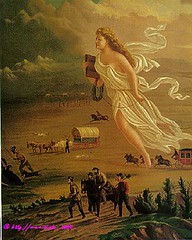 | 35 |
| 9760180011 | Texas Annexation | 1845. Originally refused in 1837, as the U.S. Government believed that the annexation would lead to war with Mexico. Texas remained a sovereign nation. Annexed via a joint resolution through Congress, supported by President-elect Polk, and approved in 1845. Land from the Republic of Texas later became parts of NM, CO, OK, KS, and WY. |  | 36 |
| 9760180012 | "Fifty-Four Forty or Fight" | The phrase used in James K Polk's 1844 presidential election dealing with the Oregon Territory. Polk's campaign used the phrase as a rallying cry for the United States to obtain all of Oregon Territory, including land claimed by the English, up through Northern Canada. |  | 37 |
| 9760180013 | Oregon Trail | 2000 mile long path along which thousands of Americans journeyed to the Willamette Valley in the 1840's. | 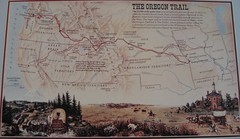 | 38 |
| 9760180014 | Mountain Men | Fur trappers of the northwest who paved the way for continuous settlement of the great west |  | 39 |
| 9760180015 | California Gold Rush | 1849. Gold discovered in California attracted a rush of people all over the country and world to San Francisco; arrival of the Chinese; increased pressure on federal government to establish a stable government |  | 40 |
| 9760180016 | Mexican American War | 1846 - 1848. President Polk declared war on Mexico over the dispute of land in Texas. At the end, American ended up with 55% of Mexico's land, called the Mexican Cession. |  | 41 |
| 9760180017 | Republican Party | 1854. Established by anti-slavery Whigs and Democrats, "free-soilers" and reformers from the Northwest met and formed party in order to keep slavery out of the territories. |  | 42 |
| 9760180018 | Stephen A. Douglas | Senator from Illinois who ran for president against Abraham Lincoln and was a leading voice in the debates over slavery and its expansion before the Civil War. Wrote the Kansas-Nebraska Act and the Freeport Doctrine. |  | 43 |
| 9760180019 | Abraham Lincoln | 16th President of the United States saved the Union during the Civil War and emancipated the slaves; was assassinated by Booth (1809-1865) |  | 44 |
| 9760180020 | secession | Formal withdrawal of states or regions from a nation |  | 45 |
| 9760179958 | habeas corpus | Petition requiring law enforcement officers to present detained individuals before the court to examine the legality of the arrest. Protects individuals from arbitrary state action. Suspended by Lincoln during the Civil War. |  | 46 |
| 9760180021 | sectionalism | Term used to describe the growing differences between the regions of the United States, especially the North and South, leading up to the Civil War. |  | 47 |
| 9760180022 | Robert E. Lee | Confederate general who had opposed secession but did not believe the Union should be held together by force. Military genius whose aggressiveness made him a fearsome opponent throughout the Civil War. |  | 48 |
| 9760180023 | Fort Sumter | Federal fort in the harbor of Charleston, South Carolina; the confederate attack on the fort marked the start of the Civil War. |  | 49 |
| 9760180024 | Battle of Antietam | A battle near a sluggish little creek, it proved to be the bloodiest single day battle in American History with over 26,000 lives lost in that single day. Prevented an Confederate invasion of Maryland. |  | 50 |
| 9760180025 | Battle of Vicksburg | Grant besieged the city from May 18 to July 4, 1863, until it surrendered, yielding command of the Mississippi River to the Union effectively splitting the South in two. |  | 51 |
| 9760180026 | Battle of Gettysburg | A large battle in the American Civil War, took place in southern Pennsylvania from July 1 to July 3, 1863. Union General George G. Meade led an army of about 90,000 men to victory against General Robert E. Lee's Confederate army of about 75,000. Proved to be a significant turning point in the war because of the loss of about 1/3 of Lee's army. |  | 52 |
| 9760180027 | Ulysses S. Grant | An American general and the eighteenth President of the United States (1869-1877). He achieved international fame as the leading Union general in the American Civil War. |  | 53 |
| 9760180028 | William Tecumseh Sherman | Union General who destroyed South during "march to the sea" from Atlanta to Savannah; example of total war and "scorched-earth" military tactics. |  | 54 |
| 9760180029 | Thomas "Stonewall" Jackson | He was a confederate general who was known for his fearlessness in leading rapid marches, bold flanking movements, and furious assaults. He earned his nickname at the battle of first bull run for standing courageously against union fire. During the battle of Chancellorsville his own men accidently mortally wounded him. |  | 55 |
| 9760180030 | martial law | Rule by the army instead of the elected government (such as in the South as a result of the Military Reconstruction Act) |  | 56 |
| 9760180031 | emergency powers | Wide-ranging powers a president may exercise during times of crisis or those powers permitted the president by Congress for a limited time. |  | 57 |
| 9760180032 | Radical Reconstruction | Name given to the period when Congress, which was controlled by Republicans, took over Reconstruction efforts. When southerners balked at some of the more moderate reforms proposed, more radical republicans started to gain more power and pass more legislation. |  | 58 |
| 9760180033 | Military Reconstruction Act | 1867. Divided the South into five districts and placed them under military rule; required Southern States to ratify the 14th amendment; guaranteed freedmen the right to vote in convention to write new state constitutions |  | 59 |
| 9760180034 | Freedmen's Bureau | 1865. Organization (turned government agency) run by the army to care for and protect southern Blacks after the Civil War, sometimes including settling them on confiscated confederate lands. |  | 60 |
| 9760180035 | Election of 1876 | Ended reconstruction because neither candidate had an electoral majority. The Democrat Sam Tilden loses the election to Rutherford B Hayes, Republican, was elected, and then ended reconstruction as he secretly promised. |  | 61 |
| 9760180036 | carpetbagger | A northerner who went to the South immediately after the Civil War; especially one who tried to gain political advantage or other advantages from the disorganized situation in southern states (as viewed from the southern perspective). |  | 62 |
| 9760180037 | scalawag | A derogatory term for southerners who were working with the North to buy up land from desperate southerners; sometimes used in a general way by southerners criticizing other southerners who had northern sympathies. |  | 63 |
| 9760179959 | Nat Turner | A black preacher who in 1831 led a slave revolt Virginia that killed 60 whites. 100+ blacks were executed as a result. The rebellion was significant as it worried southern whites that larger slave rebellions were possible and therefore stricter rules were needed. |  | 64 |
| 9760179960 | Sojourner Truth | A freed black woman who became a leader in the fight for black emancipation and women's rights. |  | 65 |
| 9760179961 | Frederick Douglass | An escaped slave who spoke publicly for the abolitionist cause. He wrote his autobiography, depicting the harsh realities of Southern slavery. He also looked to politics to help abolish slavery. |  | 66 |
| 9760179962 | Cotton Kingdom | Areas in the south where cotton farming developed because of the high demand for cotton and soon dominated the economy. |  | 67 |
| 9760179963 | Gag Resolution | Strict rule passed by pro-southern Congressmen in 1836 to prohibit all discussion of slavery in the House of Representatives |  | 68 |
| 9760179964 | American Colonization Society | Created in 1817 and supported by some blacks and whites, its purpose was to transport African Americans back to Africa once they had been freed from slavery. Idea was based on the idea that whites and blacks could not live as equals in America, even if slavery were abolished. |  | 69 |
| 9760179965 | James K. Polk | Democratic president after John Tyler who was best known for policies that promoted Manifest Destiny and expansionism. |  | 70 |
| 9760179966 | John C. Fremont | An American military officer, explorer, the first candidate of the Republican Party for the office of President of the United States (1856), and the first presidential candidate of a major party to run on a platform in opposition to slavery. |  | 71 |
| 9760179967 | Bear Flag Revolt | (1846) a revolt that took place during the Mexican-American War when 500 Americans (Anglos) in Mexican California took the city of Sonoma, CA in the spirit of Manifest Destiny and declared California to be an independent nation. |  | 72 |
| 9760179968 | John C. Calhoun | Senator who argued for states' rights for the South. He asked for slavery to be left alone, slaves to be returned to the South, and state balance to be kept intact. |  | 73 |
| 9760179969 | William H. Seward | Congressman of the "Young Guard" who fiercely opposed slavery and argued that Americans should follow a "higher law" (God's law) over the Constitution when it came to the issue of slavery. |  | 74 |
| 9760179970 | Henry Clay | Known as the "Great Compromiser"; senator who pushed for compromise between the North and South and worked with Stephen Douglas; major figure in the passing of both the Missouri Compromise (1820) and Compromise of 1850. |  | 75 |
| 9760179971 | Underground Railroad | Secret system of safe houses along a route that led many slaves to freedom in the North and eventually Canada. |  | 76 |
| 9760179972 | "Fire Eaters" | Refers to a group of extremist pro-slavery politicians from the South who urged the cessation of southern states. |  | 77 |
| 9760179973 | Charles Sumner | Senator who spoke out for black freedom and racial equality post-Civil War. Publicly beaten by Preston Brooks for speaking out against the violence in Kansas, an event that marked increasing tensions between the North and South prior to the Civil War. |  | 78 |
| 9760179974 | Roger Taney | Chief Justice of the Supreme Court who wrote an opinion in the 1857 Dred Scott case that declared the Missouri compromise unconstitutional, thereby legally preventing Congress from prohibiting slavery in new territories (and made Popular Sovereignty illegal). |  | 79 |
| 9760179975 | Jefferson Davis | President of the Confederate States of America prior to and during the Civil War. |  | 80 |
| 9760179976 | self-determination | The ability of a people/government to determine their own course or future using their own free will. |  | 81 |
| 9760179977 | Pottawatomie Creek Massacre | In reaction to the sacking of Lawrence (Kansas) by pro-slavery forces, John Brown and a band of abolitionist settlers killed five pro-slavery settlers north of Pottawatomie Creek in Franklin County, Kansas. |  | 82 |
| 9760179978 | Lecompton Constitution | Supported the existence of slavery in the proposed state and protected rights of slaveholders. It was rejected by Kansas, making Kansas an eventual free state (and was a factor in spurring violence there). |  | 83 |
| 9760179979 | Lincoln-Douglas Debates | Lincoln challenged Stephen Douglas to debates during the senatorial race of 1858 which became a public referendum on the issue of slavery. |  | 84 |
| 9760179980 | Clara Barton | Launched the American Red Cross in 1881. An "angel" in the Civil War, she was a hospital nurse that treated the wounded in the field. |  | 85 |
| 9760179981 | Border States | Southern states that never chose secession and joined the Confederacy during the Civil War (Missouri, Kentucky, Maryland, and Deleware). |  | 86 |
| 9760179982 | Andrew Johnson | 17th President of the United States, A Southerner form Tennessee, as V.P. when Lincoln was killed, he became president. He opposed radical Republicans who passed Reconstruction Acts over his veto. The first U.S. president to be impeached, he survived the Senate removal by only one vote. |  | 87 |
| 9760179983 | John Wilkes Booth | Southerner who assasinated Abraham Lincoln on April 14, 1865 |  | 88 |
| 9760179984 | George B. McClellan | First commander of the Army of the Potomac; well-known for being a master at training an army; was replaced several times by President Lincoln during the Civil War because of his timidness and sometimes outright refusal to send his army into battle. |  | 89 |
| 9760179985 | Merrimack (the Virginia) v. Monitor | A battle between for first "ironclad" naval vessels, marking a new age in naval warfare. |  | 90 |
| 9760179986 | Copperheads | Nickname for Northerners who were pro-Confederacy. |  | 91 |
| 9760179987 | First Battle of Bull Run (Battle of Manassas) | (July 1861) first major conflict of the Civil War. Southern victory led to overconfidence. |  | 92 |
| 9760179988 | Wade-Davis Bill | Bill pushed by Congress in 1864 that required 50 percent of a state's voters take the oath of allegiance and demanded stronger safe-guards for emancipation than proposed in Lincoln's 10 percent plan. Pocket-vetoed by Lincoln. |  | 93 |
| 9760179989 | 10 Percent Plan | Lincoln's plan for re-admitting the Southern states into the Union: a state could be reintegrated into the Union when 10 percent of its voters in the presidential election of 1860 had taken an oath of allegiance to the United States and pledged to abide by emancipation. |  | 94 |
| 9760179990 | Civil Rights Act (1866) | A Reconstruction bill which gave which granted citizenship to African Americans and weakened the poliferation of Black Codes in the South. |  | 95 |
| 9760179991 | Redeemers | Largely former slave owners who were the bitterest opponents of the Republican program in the South. Staged a major counterrevolution to "redeem" the south by taking back southern state governments. Their foundation rested on the idea of racism and white supremacy. |  | 96 |
| 9760179992 | Ku Klux Klan | The "Invisible Empire of the South", founded in Tennessee in 1866, made up of embittered white Southerners who resented the success and ability of Black legislators. They would terrorize, mutilate, and even murder "upstart" blacks or their supporters to "keep them in their place". |  | 97 |
| 9760179993 | "Seward's Folly" | Refers to the United States' Secretary of State William Seward's decision to purchase the Alaskan territory from Russia in 1867. At the time, Seward's decision to buy the land was regarded as a terrible one by many critics in the United States. |  | 98 |














































































































